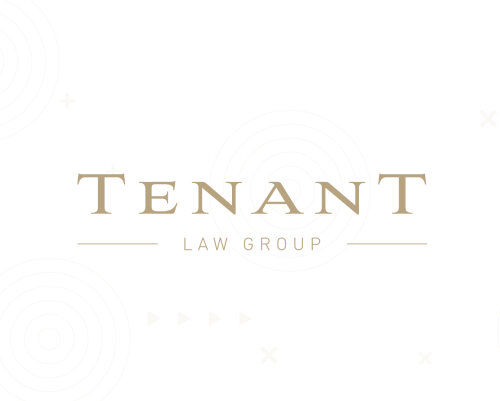Best Restructuring & Insolvency Lawyers in San Francisco
Share your needs with us, get contacted by law firms.
Free. Takes 2 min.
List of the best lawyers in San Francisco, United States
About Restructuring & Insolvency Law in San Francisco, United States
Restructuring and insolvency law is a specialized practice area that addresses the financial distress of businesses and individuals. In San Francisco, this legal field guides companies, creditors, and debtors through restructuring debts, negotiating settlements, and, when necessary, entering formal insolvency proceedings such as bankruptcy. As a major financial center in California, San Francisco sees a wide range of restructuring cases, from tech startups seeking to reorganize their finances to long-standing companies facing economic challenges. The city’s legal practices must align with both federal laws, like the United States Bankruptcy Code, and California state regulations, making it important for those involved to understand the local legal landscape.
Why You May Need a Lawyer
Restructuring and insolvency matters can be complex and require careful navigation to avoid serious financial and legal consequences. Common situations where individuals or businesses may need legal help include:
- Filing for bankruptcy under Chapter 7, Chapter 11, or Chapter 13
- Negotiating with creditors to restructure debt
- Facing foreclosure or repossession
- Protecting assets from liquidation
- Dealing with business insolvency and winding down operations
- Defending against lawsuits or collection actions
- Responding to involuntary bankruptcy petitions
- Managing personal financial crises that threaten business interests
- Complying with California and federal insolvency regulations
- Understanding rights and obligations during insolvency
A knowledgeable lawyer can provide strategic guidance, ensure compliance with local laws, negotiate on your behalf, and represent you in court if necessary.
Local Laws Overview
San Francisco businesses and individuals must adhere to both federal and California state insolvency laws. Most bankruptcy cases, including reorganizations and liquidations, are governed by federal law - mainly the United States Bankruptcy Code - and are handled in the United States Bankruptcy Court for the Northern District of California, located in San Francisco.
California state law also plays a crucial role, especially in areas such as exemptions, creditor rights, and treatment of community property. Some key aspects include:
- Bankruptcy exemptions: California offers its own set of exemptions that differ from those at the federal level. Individuals can choose between the two, depending on their circumstances.
- Assignment for the benefit of creditors (ABC): California businesses may use this process as an alternative to bankruptcy, facilitating a more private resolution.
- Foreclosure and eviction timelines: State laws dictate specific procedures and notice periods for these actions.
- Small business restructuring: Newer laws allow qualifying small businesses to expedite bankruptcy under Subchapter V of Chapter 11.
It is important to consult with local counsel familiar with San Francisco-area courts and procedures to fully understand your rights and obligations.
Frequently Asked Questions
What is the difference between restructuring and insolvency?
Restructuring generally refers to reorganizing a company’s finances or operations to address financial distress and avoid insolvency. Insolvency means an inability to pay debts as they come due, which may lead to bankruptcy or other legal proceedings.
What types of bankruptcy are available in San Francisco?
The most common bankruptcy chapters are Chapter 7 (liquidation), Chapter 11 (business reorganization), and Chapter 13 (individual debt adjustment). Each chapter offers different processes and legal protections.
Can individuals and businesses both file for bankruptcy?
Yes. Both individuals and businesses can file for bankruptcy in San Francisco. The specific chapter and process depend on the nature and structure of the debts and assets involved.
Are there alternatives to bankruptcy for businesses in San Francisco?
Yes. Businesses may use out-of-court workouts, assignments for the benefit of creditors, or negotiate directly with creditors to restructure debts without filing for bankruptcy.
How do bankruptcy exemptions work in California?
Bankruptcy exemptions protect certain types of property from liquidation. California provides two sets of exemptions, and debtors must choose one. The right choice depends on the types of assets you own.
Will filing for bankruptcy stop creditors from contacting me?
Yes. Filing triggers an automatic stay that stops most collection actions, including calls, lawsuits, wage garnishments, and foreclosures, for the duration of the bankruptcy process.
What is an Assignment for the Benefit of Creditors (ABC)?
An ABC is a state-law process where a business assigns its assets to a third party for orderly liquidation, often resulting in higher returns to creditors than formal bankruptcy.
How long does a typical bankruptcy process take in San Francisco?
The timeframe varies. Simple Chapter 7 cases may close in four to six months, while more complex Chapter 11 reorganizations can take a year or more.
What impact does insolvency have on personal or business credit in California?
Filing for bankruptcy or experiencing business insolvency will negatively affect credit scores. The record may remain for up to ten years, but many recover and rebuild credit over time.
Do I need a lawyer to file for bankruptcy in San Francisco?
It is not legally required, but highly recommended. The process is complex, and an experienced lawyer can help protect your rights, maximize exemptions, and improve your chances of a favorable outcome.
Additional Resources
If you need more information or assistance, the following organizations may help:
- United States Bankruptcy Court - Northern District of California (San Francisco Division)
- California Department of Business Oversight
- San Francisco Bar Association Lawyer Referral and Information Service
- Legal Aid at Work (for low-income individuals)
- Consumer Financial Protection Bureau (CFPB)
- California State Bar Association
Next Steps
If you are facing financial difficulties or believe your business may be insolvent, it is important to act quickly. Start by gathering all relevant financial documents, including income, expenses, debts, and assets. Seek a consultation with a local lawyer specializing in restructuring and insolvency. An attorney can evaluate your unique situation, explain your legal options, and develop a strategy tailored to your goals. Remember, early legal advice can prevent mistakes and help protect your financial future.
Lawzana helps you find the best lawyers and law firms in San Francisco through a curated and pre-screened list of qualified legal professionals. Our platform offers rankings and detailed profiles of attorneys and law firms, allowing you to compare based on practice areas, including Restructuring & Insolvency, experience, and client feedback.
Each profile includes a description of the firm's areas of practice, client reviews, team members and partners, year of establishment, spoken languages, office locations, contact information, social media presence, and any published articles or resources. Most firms on our platform speak English and are experienced in both local and international legal matters.
Get a quote from top-rated law firms in San Francisco, United States — quickly, securely, and without unnecessary hassle.
Disclaimer:
The information provided on this page is for general informational purposes only and does not constitute legal advice. While we strive to ensure the accuracy and relevance of the content, legal information may change over time, and interpretations of the law can vary. You should always consult with a qualified legal professional for advice specific to your situation.
We disclaim all liability for actions taken or not taken based on the content of this page. If you believe any information is incorrect or outdated, please contact us, and we will review and update it where appropriate.
















